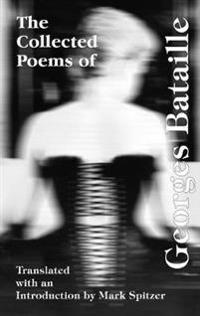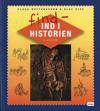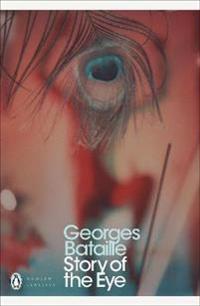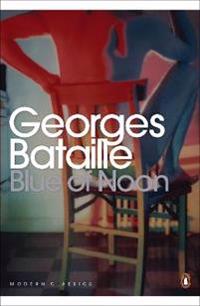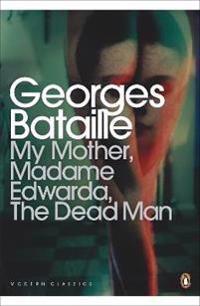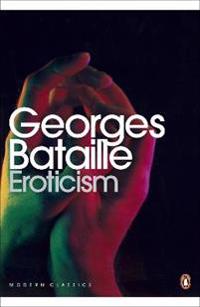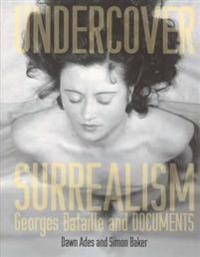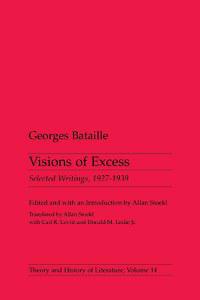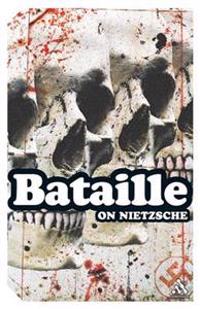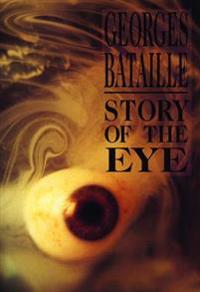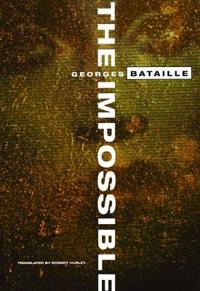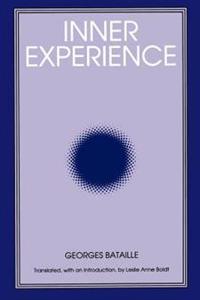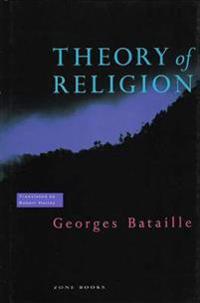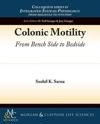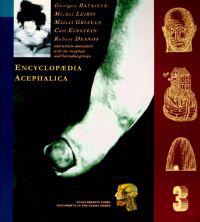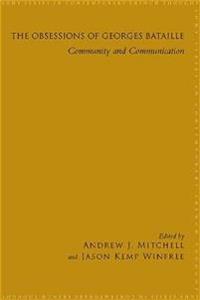The Collected Poems of Georges Bataille (Häftad)
avGeorges Bataille
ISBN: 9780802313256 - UTGIVEN: 199812The Tears of Eros (Pocket)
avGeorges Bataille, Peter (TRN) Connor, Georges Bataille
ISBN: 9780872862227 - UTGIVEN: 1989-06Tears of Eros is the culmination of Georges Bataille's inquiries into the relationship between violence and the sacred. Taking up such figures as Giles de Rais, Erzebet Bathory, the Marquis de Sade, El Greco, Gustave Moreau, Andre Breton, Voodoo practitioners, and Chinese torture victims, Bataille r[...]
Story of the Eye (Storpocket)
avGeorges Bataille
ISBN: 9780141185385 - UTGIVEN: 200104Bataille's first novel, published under the pseudonym 'Lord Auch', is still his most notorious work. In this explicit pornographic fantasy, the young male narrator and his lovers Simone and Marcelle embark on a sexual quest involving sadism, torture, orgies, madness and defilement, culminating in a [...]
Blue of Noon (Häftad)
avGeorges Bataille
ISBN: 9780141195544 - UTGIVEN: 2012-06Set against the backdrop of Europe's slide into Fascism, "Blue of Noon" is a blackly compelling account of depravity and violence. As its narrator lurches despairingly from city to city in a surreal sexual and mental nightmare of squalor, sadism and drunken encounters, his internal collapse mirrors [...]
My Mother, Madame Edwarda, The Dead Man (Häftad)
avGeorges Bataille
ISBN: 9780141195551 - UTGIVEN: 201206In these three works of erotic prose Georges Bataille fuses sex and spirituality in a highly personal and philosophical vision of the self. "My Mother" is a frank and intense depiction of a young man's sexual initiation and corruption by his mother, where the profane becomes sacred, and intense expe[...]
Eroticism (Häftad)
avGeorges Bataille
ISBN: 9780141195568 - UTGIVEN: 201206A philosopher, essayist, novelist, pornographer and fervent Catholic who came to regard the brothels of Paris as his true 'churches', Georges Bataille ranks among the boldest and most disturbing of twentieth-century thinkers. In this influential study he links the underlying sexual basis of religion[...]
Literature and Evil (Häftad)
avGeorges Bataille
ISBN: 9780141195575 - UTGIVEN: 201206'Literature is not innocent', stated Georges Bataille in this extraordinary 1957 collection of essays, arguing that only by acknowledging its complicity with the knowledge of evil can literature communicate fully and intensely. These literary profiles of eight authors and their work, including Emily[...]
Undercover Surrealism: Georges Bataille and Documents (Häftad)
avDawn Ades, Simon Baker
ISBN: 9780262012300 - UTGIVEN: 200608In the Paris art world of the 1920s, Georges Bataille and his journal DOCUMENTS represented a dissident branch of surrealism. Bataille--poet, philosopher, writer, and self-styled "enemy within" surrealism--used DOCUMENTS to put art into violent confrontation with popular culture, ethnography, film, [...]
Georges Bataille (Pocket)
avMichael Richardson
ISBN: 9780415098427 - UTGIVEN: 1994-07George Bataille (1867-1962) is widely recognized as one of the most important thinkers of the twentieth century. This is the first book in English to examine Bataille's work as a whole. It offers an accessible introduction to a complex and often ambiguous thinker.[...]
Georges Bataille
ISBN: 9780761960782 - UTGIVEN: 2000-11Long recognized in France as a central figure in French cultural thought, the range and significance of Batille's ideas are now being grasped in the English speaking world. His influence on Derrida, Foucault, Kristeva and Baudrillard is now more clearly understood and Bataille has emerged as a front[...]
Practical Radiology (Häftad)
avGeorges Bataille
ISBN: 9780803628328 - UTGIVEN: 201307Rely on this practical guide to the role of medical imaging in the diagnosis and treatment of common diseases and disorders. Follow its symptoms-based approach to learn when medical imaging is appropriate, what the ideal study may be for a specific clinical problem, how to interpret an official repo[...]
Georges Bataille (Pocket)
avRodolphe Gasche, Roland (TRN) Vegso, David Farrell (FRW) Krell
ISBN: 9780804776073 - UTGIVEN: 2012-10This book investigates what Bataille, in "The Pineal Eye," calls mythological representation: the mythological anthropology with which this unusual thinker wished to outflank and undo scientific (and philosophical) anthropology. Gasche probes that anthropology by situating Bataille's thought with re[...]
The Unfinished System of Nonknowledge (Häftad)
avGeorges Bataille
ISBN: 9780816635054 - UTGIVEN: 200411On Nietzsche (Häftad)
avGeorges Bataille
ISBN: 9780826477088 - UTGIVEN: 2004-11"Georges Bataille (1897-1962) was an essayist, poet, novelist and philosopher of excess. His philosophy emerges from the aesthetic avant-garde of the 1920s and 30s, when he was associated with the surrealist movement, and has since been explored by the major figures of poststructuralism and postmode[...]
Erotism: Death and Sensuality (Häftad)
avGeorges Bataille
ISBN: 9780872861909 - UTGIVEN: 200101Taboo and sacrifice, transgression and language, death and sensuality-Georges Bataille pursues these themes with an original, often startling perspective. He challenges any single discourse on the erotic. The scope of his inquiry ranges from Emily Bronte to Sade, from St. Therese to Claude Levi-Stra[...]
Story of the Eye (Häftad)
avGeorges Bataille
ISBN: 9780872862098 - UTGIVEN: 200101In 1928, Georges Bataille published this first novel under a pseudonym, a legendary shocker that uncovers the dark side of the erotic by means of forbidden obsessive fantasies of excess and sexual extremes. A classic of pornographic literature, Story of the Eye finds the parallels in Sade and Nietzs[...]
The Impossible (Häftad)
avGeorges Bataille
ISBN: 9780872862623 - UTGIVEN: 2001-01In a philosophical erotic narrative, an essay on poetry, and in poems Georges Bataille pursues his guiding concept, the impossible. The narrator engages in a journey, one reminiscent of the Grail quest; failing, he experiences truth. He describes a movement toward a disappearing object, the same elu[...]
Theory of Religion (Häftad)
avGeorges Bataille
ISBN: 9780942299090 - UTGIVEN: 199209Theory of Religion brings to philosophy what Bataille's earlier book, The Accursed Share, brought to anthropology and history; namely, an analysis based on notions of excess and expenditure. Bataille brilliantly defines religion as so many different attempts to respond to the universe's relentless g[...]
The Accursed Share (Pocket)
avGeorges Bataille
ISBN: 9780942299113 - UTGIVEN: 1991-05-15Most Anglo-American readers know Bataille as a novelist. The "Accursed Share "provides an excellent introduction to Bataille the philosopher. Here he uses his unique economic theory as the basis for an incisive inquiry into the very nature of civilization. Unlike conventional economic models based o[...]
The Accursed Share (Häftad)
avGeorges Bataille
ISBN: 9780942299212 - UTGIVEN: 1993-11The three volumes of The Accursed Share address what Georges Bataille sees as the paradox of utility: namely, if being useful means serving a further end, then the ultimate end of utility can only be uselessness. The first volume of The Accursed Share, the only one published before Bataille's death,[...]

